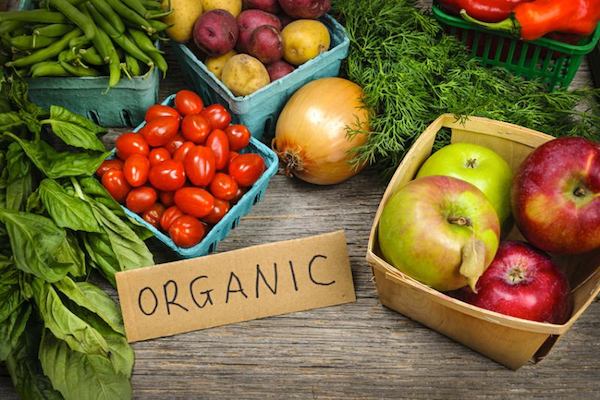The term organic has become more popular by the day. People are now wondering if there is a difference between organic and non organic food and what the health benefits may be.
The first thing I want to share with you is that even though a product may be organic, it does not mean it is the healthiest you can buy. Eating organic does not mean you can eat a certain food without any restriction. Depending on your health and fitness goals, each type of food may have a positive or negative impact on your journey. Furthermore, many packaged foods that come from organic ingredients may be filled with sugar, high salt and fat. Just so you know, the term organic refers to how the vegetables, fruits and meat are produced. “Organic produce and meats do not use conventional methods to fertilize, control weeds, or prevent disease among livestock. For example, conventional farmers apply chemical fertilizers to promote plant growth; organic farmers apply natural fertilizers to feed soil and plants, such as manure or compost.”
Having gotten that confusion out of the way, I want to explain why organic produce can be better than non organic on your health and on the preservation of the environment.
- Organic farming is designed to improve soil and water quality, reduce pollution and promote self-sustaining cycle resources on a farm.
- What do the terms Organic and Grass Fed mean when referring to meat, eggs and poultry? When a meat product is organic, animals cannot be confined for an extended period of time, be overcrowded or kept in unsanitary conditions. Additionally, animals cannot be directly or indirectly exposed to artificial pesticides, fertilisers, antibiotics, hormones, GMO’s or other contaminants. When a product is grass fed, it means animals were allowed to forage and graze for their own fresh food.
- Growing non organic foods usually means that the soil becomes depleted of a lot of nutrients and minerals because of the heavy use of fertilisers, pesticides and other commercial contaminants. This is why when we eat non organic food we may not be receiving all the nutritional benefits we should from our food.
- Pesticides and antibiotics from non organic produce and meat may impact our health negatively if our bodies cannot manage to get rid of all the substances that they fill up our body with. Toxins are eliminated through the liver, kidneys, lymph, lung and skin. The more the body receives, the harder it will be it to get rid of all the excess waste. In the long run this may cause hormonal imbalances because the endocrine system has to secrete hormones to stimulate detoxification. Overtime, glands may become inefficient and alter our natural balance.
In all, it is a healthier choice to eat as much organic produce as you can, but let’s face it, not everybody can afford to buy all organic ingredients. This is why every year a report called The Dirty Dozen is shared to make people aware of which are the fruits and vegetables that are the most and the least contaminated by chemicals. If you cannot buy much organic produce, this is a great way to avoid heavy contaminated foods, and instead go with those that are cleaner and safer to eat.
TIP: To wash your fruits and vegetables, leave them soaking in water mixed with a part of vinegar for 15-20 minutes and then wash. This will partly eliminate all the toxins contained in the produce and allow you to have cleaner food.


